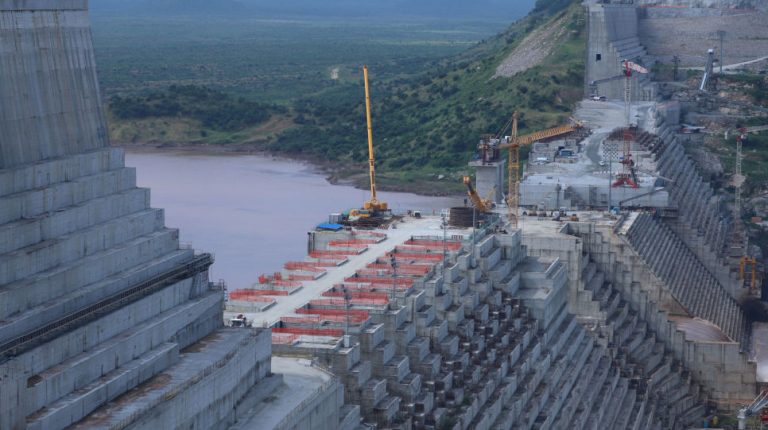Egypt’s Ministry of Water Resources and Irrigation said outcomes will be reviewed during the ministerial meeting on Thursday, following the second round of talks on the Grand Ethiopian Renaissance Dam (GERD) on Monday.
The recent round of GERD negotiations was observed by the African Union (AU) Assembly Bureau, representatives from AU member states, the US, and the European Union (EU).
The parties aim to reach, through the talks, a legally binding agreement on the disputed points related to filling and operation of the dam.
During the recent meetings, Egypt’s Minister of Water Resources and Irrigation Mohamed Abdel Aaty objected to Ethiopia’s unilateral action to fill the dam’s reservoir without prior coordination with downstream countries. He said that the Ethiopian action denotes that Addis Ababa is not willing to achieve a fair agreement.
Abdel Aaty stressed that the current round of talks will focus only on the filling and operation of GERD. Any points regarding future projects over the Blue Nile will be addressed later after reaching consensus on the Ethiopian dam’s disputed points.
The current round of negotiations comes in accordance with the virtual mini-summit sponsored by South Africa the current chair of the AU which was held last month, and gathered Heads of State from Egypt, Sudan, and Ethiopia.
Leaders had agreed to resume talks on the disputed points with the aim to reach a final agreement. Following the meeting, Addis Ababa announced that the dam’s first year of filling was achieved due to the heavy rain the country witnessed in the current rainy season.
The AU has called on the three parties to achieve a legally binding agreement on the disputed points. Ethiopian officials, however, have repeated statements saying that the country does not want a binding agreement that could seize its control over the Blue Nile.
The Ethiopian statements were firmly rejected by Cairo at the time, and during Monday’s meeting, both Cairo and Khartoum reiterated their rejection to any Ethiopian unilateral action to fill the dam’s reservoir before achieving consensus with the three parties.
































